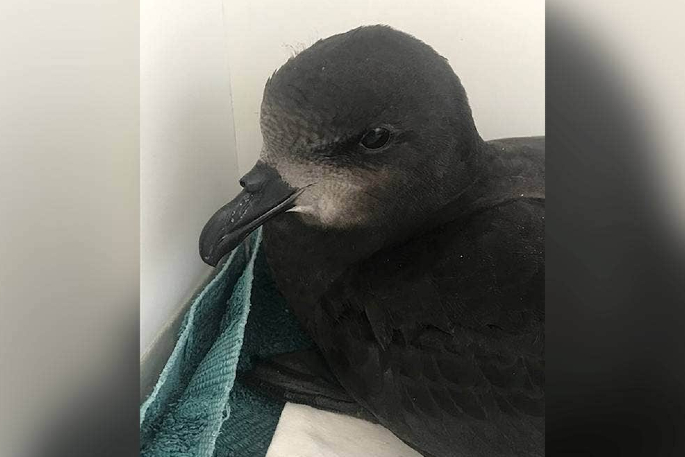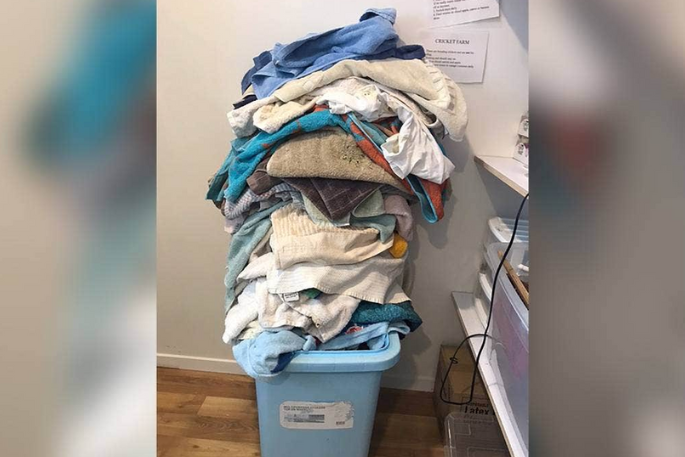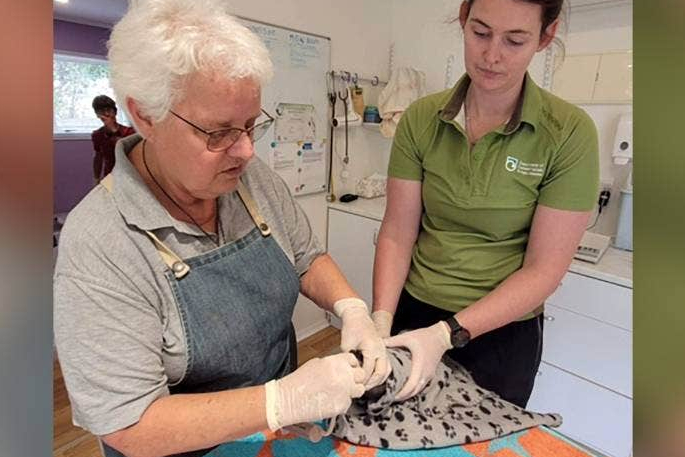A Coromandel bird rescue centre is battling to save an 'influx” of wild birds caught in the carnage of the region's severe weather.
The birds have been turning up 'thick and fast” to the rescue centre with some dying.
Staff at the Kuaotunu Bird Rescue Trust on the Coromandel Peninsula say they have been inundated with weak, injured and de-hydrated birds over the past month, kick-started by Cylcone Hale.
Annemieke Kregting, founder of the trust says it had become a serious problem.
Over 100 wild birds and counting had been handed in by conservation staff and members of the public since the start of January.
”It's definitely been a phenomenon,” says Kregting.
'Almost from day one” when Cyclone Hale struck they were receiving call after call about displaced birds which had staff already playing catch-up.
But more weather events were bound to pose an added threat Kregting says, and they were waiting on edge.
Many of the affected birds were crashed seabirds as well as multiple lost fledglings.
Fledglings including kingfishers, silver eyes, pigeons, kereru, swallows and other non-natives routinely emerge from their burrows before taking their first flight.
But staff say this year it has come at the worst time and the 'very young birds” had fallen victim to the storms.

Many of the affected birds were crashed seabirds as well as multiple lost fledglings, like the grey-faced petrel. Photo: Supplied/Stuff.
Double the usual number of staff were on hand seven days a week to monitor the birds' rehabilitation.
The species most badly affected was the grey-faced petrels, who timed it badly as their chicks were fledging at the time the cyclone hit the Coromandel.
Many dead birds had been discovered on the coastal beaches throughout the month.
”It is really unfortunate,” says Kregting.
'We recorded 59 grey-faced petrels in the first two weeks of January, compared to 11 in the whole month of December.”
Upon arrival each rescued bird was being weighed, assessed, warmed up, recorded, and supplied with electrolytes followed by fish broth.
Native birds had also been banded, and their numbers recorded, the centre says.
'Dotterel nests and habitats were lost, the burrows of little blue penguins were washed out, and grey-faced petrels and some shearwater species got caught in the strong winds and dropped at sea or in odd places.”
 Petrels normally don't sit for long, so plenty of padding was needed in their box to avoid pressure sores on their feet. This resulted in enormous piles of washing, says Kregting. Photo: Supplied/Stuff.
Petrels normally don't sit for long, so plenty of padding was needed in their box to avoid pressure sores on their feet. This resulted in enormous piles of washing, says Kregting. Photo: Supplied/Stuff.
The petrels that had shown an improvement were being released by staff who would let them go from a height during nightfall when the birds are usually active.
But those that didn't survive were buried in deep holes on the beach 'to finish their lifecycle”.
'We had local people who contributed tinned fish and other food supplies, some neighbours turned up each night to help with the endless washing and with feeding and cleaning.
'Staff from DOC also pitched in to help on the really busy nights. CoroVets in Whangamata did an amazing job by giving the birds first aid before sending them on to us.”
The impact of the severe weather would continue to harm more birds down the line, says Kregting.
It would be a matter of doing what their best to manage further rescues as they arrived.
'We do what we can,” she says.



0 comments
Leave a Comment
You must be logged in to make a comment.